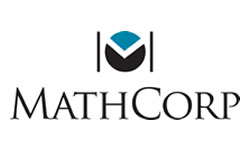 TRID Compliance & Math Corporation Software
TRID Compliance & Math Corporation Software
What is TRID?
TRID is the Truth-in-Lending Act (TILA), Real Estate Settlement Procedures Act (RESPA) Integrated Disclosure Rule that is part of the Dodd-Frank Act. It combines four previous mortgage forms into two new disclosures. The Loan Estimate replaces the initial Truth-in-Lending (TIL) form and the Good Faith Estimate. The Closing Disclosure replaces the final TIL form and the HUD-1 Settlement Statement.
When did TRID go into effect?
TRID compliance went into effect on October 3, 2015. All affected loans must now use these disclosures.
How are Math Corporation's products addressing TRID?
As part of the support we provide for all of our financial software products, Math Corporation has added TRID outputs to the products affected by TRID. These outputs consist of the data required to populate the Loan Estimate and the Closing Disclosure. Note that we do not address some of the content of the forms, particularly in the area of Cash to Close.
What Math Corporation products are TRID-compliant?
- ZMath® - Engine Loan Calculators - Full TRID output data.
- ZMath® Desktop - Desktop Lending Software - Full TRID output data and model forms. The forms are not compliant as final disclosures but contain the data needed for TRID document production and/or audit.
- eZMath® - Mortgage Loan Software - Full TRID output data and model forms. The forms are not compliant as final disclosures but contain the data needed for TRID document production and/or audit.
- ZMath®EngineXML™ - Mortgage Loan Calculator - Full TRID output data.
How does Math Corporation ensure TRID compliance in their products?
Our TRID-compliant products have been live since September 2015 after a lengthy and thorough beta-test period. After a full two-year development effort on these changes, we like what we see. We hope you do too.
Questions or issues with TRID compliance?
Feel free to contact us and we'll try to steer you in the right direction. However, your legal counsel, compliance department, and regulatory agencies - such as the Consumer Financial Protection Bureau (CFPB) - are your best resource.

